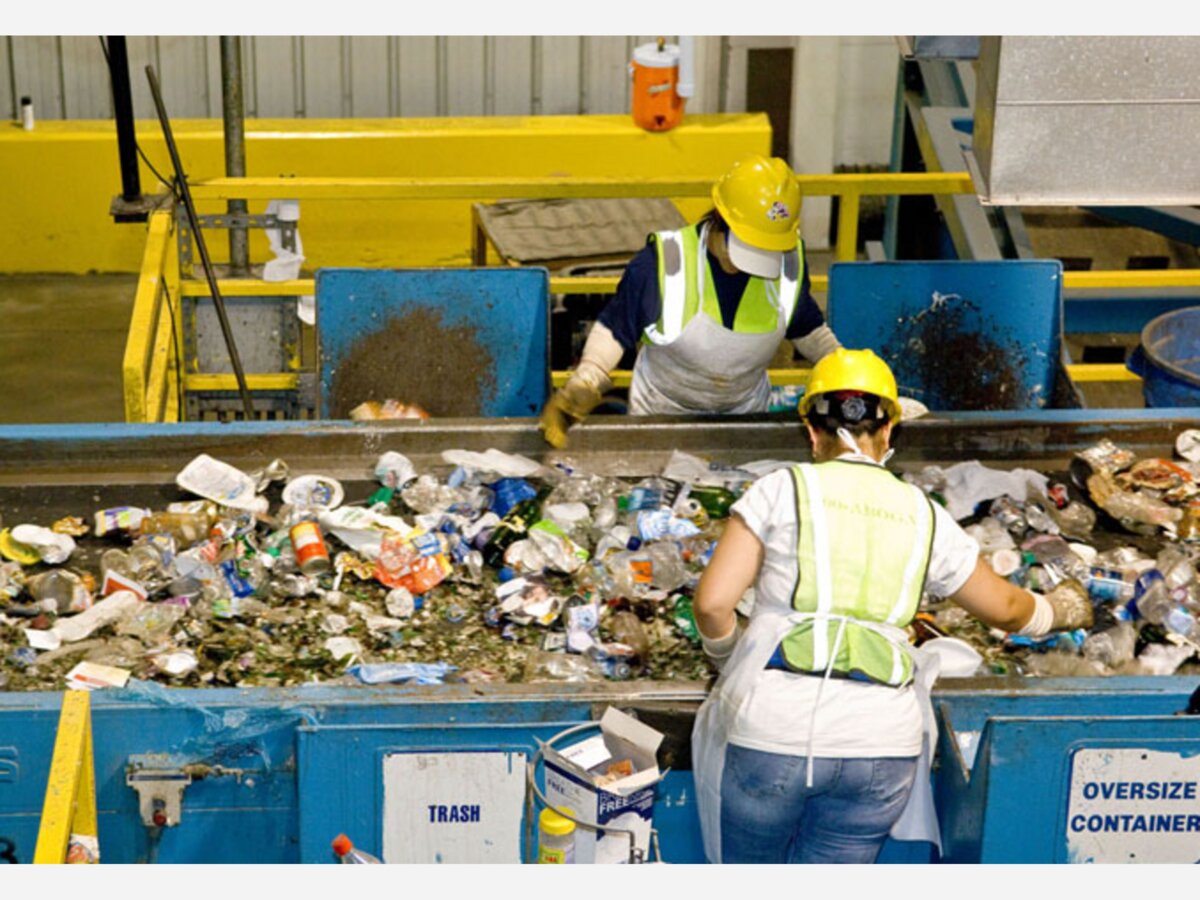Image

Above, single-stream recycling is labor-intensive and expensive. Proponents say a better bottle bill would reduce the need for single stream.
On Beacon Hill, a measure to “modernize” the familiar bottle deposit law, expanding what’s covered and raising the deposit to 10 cents, is continuing to advance through the legislature. And while there are positives to the measure, not everyone is happy.
When Massachusetts first adopted a “bottle bill,” mandating a five-cent deposit on many containers, typically soft drinks and beer, it was one of the first states to do so. At that time, the problem of beverage containers being thrown away was a new one. Cans emerged as a popular option in that decade but most bottles were still recycled to local bottlers such as regional beer makers Carling (Natick), Dawson (New Bedford), and Pickwick (Boston); soft drinks were made locally by Bostonia, Simpson Spring, and Polar, while national brands maintained many local bottling operations.
When that system was abandoned, the result was the adoption of single-use containers, swelling trash handling systems, and leading to more roadside litter.
That’s what spawned the original bottle bill.
Even then, of course, the measure had flaws. Juice drinks were exempted thanks to fierce lobbying from a Massachusetts company that was then regionally dominant in single-serving fruit beverages.
Since then, the number and variety of containers covered by the law has grown (think about all the different small breweries, for example). Even more significantly, an almost entirely new category of container consumption – varieties of bottled water – has emerged, along with energy drinks, to enlarge and complicate recycling efforts.
In Massachusetts H 3289, is set to expand the bottle bill to include any container for drinkable liquid intended for human oral consumption is inching ahead.
Meanwhile, in Congress, Oregon Senator Jeff Merkley has introduced S.984, which not only targets bottle deposits but would also outright ban certain products like disposable plastic forks.
Reaching out to local liquor retailers who would likely be most impacted by these measures produced limited responses. The proprietors of Pour Richards and Liquor World did not respond to phone or email outreach.
We did hear from Mark Lenzi, proprietor of Franklin Liquors, and he had plenty to say.
In his view, the House Bill, does nothing to address the underlying problem that he and other retailers feel is at the center of the mandate: retailers bear all of the burden and all of the costs of implementation.
As he explains it, when a consumer returns a container, it is not always clean, which can create a sanitation problem. But more significantly, the bottlers that are supposed to collect containers from retailers, do so on a slow and haphazard schedule, which means retailers must dedicate a substantial portion of their “footprint” to an activity at whatever the going per-square-foot lease rate is that generates no revenue.
“It is an unfunded mandate,” he says.
To add insult to injury, the services that pick charge 1.2 cents per container, adding further to the cost burden.
Representative Jeff Roy, who is a supporter of the bill, cites increased recycling rates, likely energy savings, and less strain on municipal trash costs if more containers to back to their point of origin. But he acknowledges the challenge for many retailers.
His view of the solution involves adoption of new recycling machines.
“I met with Mark...and we had a great discussion about the bottle bills; he showed me his collection room and we discussed some of the pragmatic issues he faces in compliance with current law,” said Roy.
“I introduced him to a collection box that could aid his operation substantially,” he added.
However, Lenzi said he was disappointed by the meeting he had with the company Roy referenced, feeling the machines are still bulky and very expensive for a small retailer such as Franklin Liquors.
Still, Roy notes the big advantages he sees for the region, citing research that suggested each year in the US, $5.1 billion in valuable and reclaimable beverage containers — glass, metal, plastic — are wasted. In the Northeast alone, that means 403 containers wasted per person, per year.
According to Roy, modernized deposit return systems can reduce regional greenhouse gas emissions by about 550,000 metric tons, save cities & towns $111—$160 million, and create over 2,700 jobs.
“Massachusetts has only a 42% return rate now, this could be increased to 95% with changes to current law,” said Roy.
Another endorsement for the updated bill comes from an elderly man, we will call him Leo, who can be seen in Franklin neighborhoods on trash day, digging through recycling containers in search of returnables – his ‘retirement job.’ “It’s been the same fee for 35 years,” he says. “What else has stayed the same price over that time,” he asks?